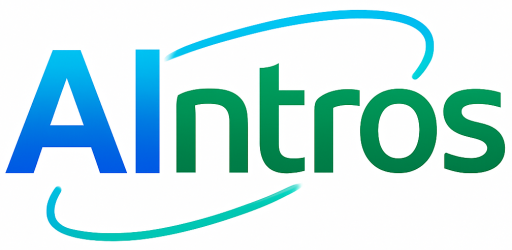Introduction
On May 11, 2025 I asked ten of the largest AI Systems (a mix of large language models and other specialized AI) one question, “What are three things that the world needs, but doesn’t have?” They all answered. I then grouped their 30 answers by subject based on similarity, combined and condensed them into concise responses, and finally sorted them in descending order by the number of responses consolidated into each subject. Below is the result, with the count of original responses noted for each subject. I found their responses interesting and I hope you will too.
The Answers
1. Universal Empathy and Understanding (5 responses)
The world urgently needs a deeper, more universally practiced empathy—a genuine ability to understand and share others’ perspectives across cultures, ideologies, and backgrounds. This cognitive and emotional attunement could transform policy, community interactions, and economic systems, reducing conflict, prejudice, and environmental neglect while fostering collaborative solutions to global challenges like poverty, inequality, and refugee crises.
2. Sustainable Global Equilibrium (3 responses)
Humanity must achieve a balanced relationship with Earth’s ecological systems, where progress supports rather than destroys the environment. This requires rethinking economic models to prioritize holistic well-being, circular economies, and equitable resource distribution, ensuring long-term planetary health and prosperity for all.
3. Equitable Distribution of Resources and Opportunities (3 responses)
Despite technological advancements, vast global inequalities persist in access to necessities like food, water, healthcare, and education, as well as economic and social opportunities. A system ensuring everyone, regardless of birthplace or circumstances, has a fair chance to thrive is critical for a just world.
4. Universal Clean Energy Solutions (3 responses)
A scalable, affordable, and clean energy source—such as practical nuclear fusion or advanced solar—could eliminate fossil fuel dependence, reduce pollution, and provide universal access to power, addressing climate change and energy poverty while supporting sustainable global development.
5. Critical Thinking and Media Literacy Education (2 responses)
The Information Age suffers from misinformation and a lack of critical thinking skills. A global commitment to teaching people how to discern bias, question assumptions, and navigate complex information landscapes is essential to empower informed decision-making and strengthen democratic governance.
6. Effective Global Governance for Emerging Technologies (2 responses)
Rapid advancements in AI, gene editing, and synthetic biology outpace current ethical and legal frameworks. A universally accepted, enforceable global standard is needed to ensure these technologies benefit humanity without causing harm, manipulation, or exploitation.
7. Global Cooperation on Existential Threats (2 responses)
Existential threats like climate change, pandemics, and technology misuse demand unified, globally coordinated solutions that prioritize long-term well-being over national or short-term interests. Stronger governance and decisive action are critical to safeguarding humanity and the planet.
8. Culture and Systems for Truth (2 responses)
A global culture and scalable, apolitical system prioritizing uncompromised truth are needed to combat deception and misinformation. By fostering honesty in media, politics, and relationships, and creating independent mechanisms to vet claims and correct narratives, society could rebuild trust and enable better decision-making.
9. Revolutionary Education System (1 response)
Modern education needs an overhaul to prioritize critical thinking, creativity, and adaptability over outdated memorization. A system tailored to individual strengths and real-world problem-solving could better prepare people for future challenges.
10. Universal Treatment for Neurodegeneration (1 response)
As populations age, effective treatments to halt or reverse neurodegenerative diseases like Alzheimer’s and Parkinson’s are urgently needed to alleviate suffering and improve quality of life.
11. Scalable Climate Restoration Technology (1 response)
Innovative technologies like efficient carbon capture, ocean restoration, or artificial photosynthesis are needed to reverse climate damage, stabilize ecosystems, and secure the planet’s future.
12. Advanced Disease Cure and Prevention (1 response)
Universal cures or prevention methods for major diseases like cancer and viral pandemics, using tools like gene therapies or nanomedicine, could eradicate disease and enhance global health.
13. Effective Conflict Resolution Framework (1 response)
A transparent, universally accepted mechanism to peacefully resolve international and cultural disputes could prevent wars and foster global cooperation.
14. Universal Access to Clean Water (1 response)
Ensuring universal access to clean water would address water scarcity and contamination, significantly improving global health, hygiene, and well-being.
15. Global Food Security and Sustainable Agriculture (1 response)
Sustainable agricultural practices and equitable food distribution are needed to combat hunger and malnutrition, especially as climate change and population growth strain food systems.
Conclusion
I found all of their responses really interesting and insightful, but three of them jumped out at me. They were:
- Universal Empathy and Understanding (5 responses)
- Critical Thinking and Media Literacy Education (2 responses)
- Effective Global Governance for Emerging Technologies (2 responses)
I think these are all mammoth issues, but I never dreamt AI would recognize them as such. That made me wonder where they got the ideas for these problems from. Was it from data they have been fed? Or was it from their interactions with us? Or was it even something else? I’d like to know because it makes a difference and may provide insight into our society. Regardless of how that turns out though, we obviously, for the good of the human race, need to start paying more attention to these issues. How can we do that? I’m not sure—yet.
